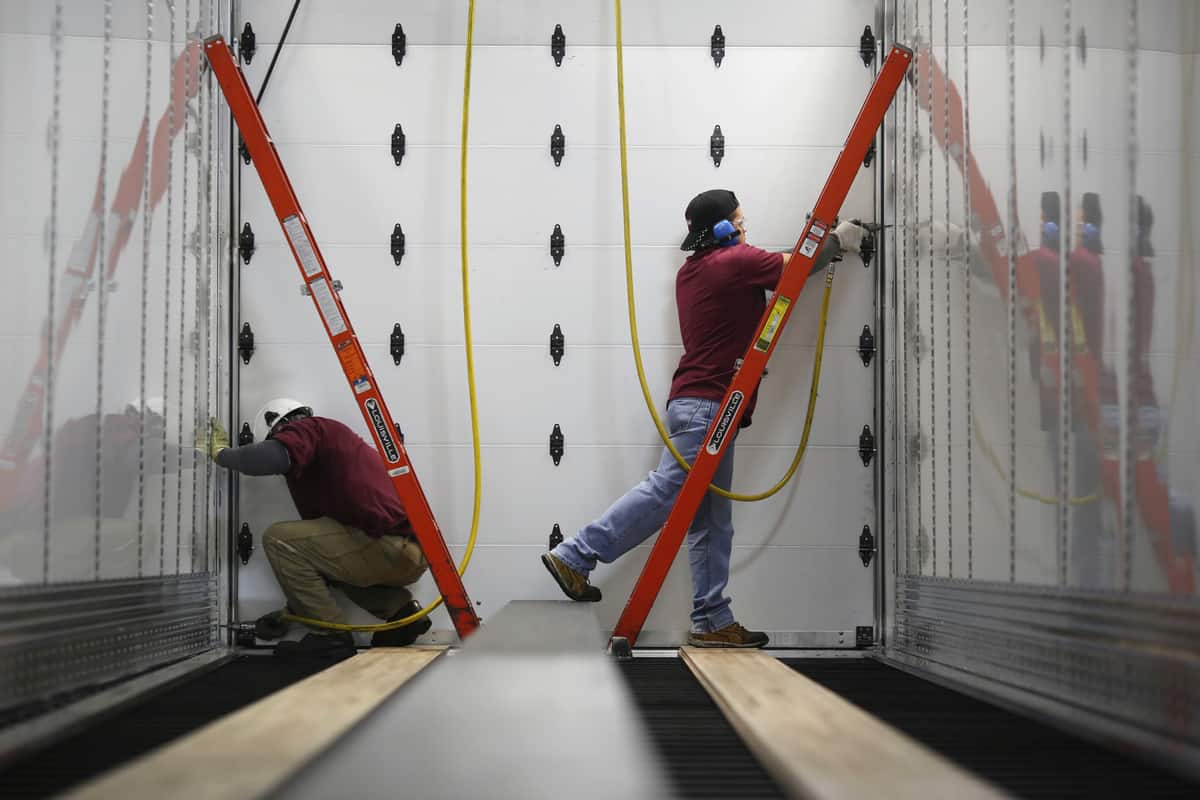Orders of new trailers recorded their softest February in 11 years, with the impact of the coronavirus giving fleets another reason to avoid buying new equipment.
The 13,000 units were the lowest total for a February since the recession year of 2009, according to FTR Transportation Intelligence.
February orders were down 20% from January and 45% from February 2019. Cancellations rose, suggesting anxiety in the market and the nation, said Don Ake, FTR vice president of commercial vehicles.
“This is about as much uncertainty as can be injected into the trailer market. There are too many unknowns, and this, of course, runs across all sectors of the economy, which means it impacts all segments of trailers,” Ake said. “Few fleets are ordering, and no one is placing large orders in this chaotic environment.”
Pragmatism over panic
After ramping up stocks to meet higher freight demand, as well as drop-and-hook and hub-and-spoke regional demand, in 2018 and early 2019, fleets have slowed their bookings to a rate below replacement demand.
“Fleets have enough equipment to handle current freight volumes, so they can afford to wait until the crisis abates before ordering new trailers,” Ake said.
Trailer orders have now totaled 184,000 units for the past 12 months. FTR estimated trailer orders in 2020 at 270,000 before the spread of coronavirus. ACT Research estimated 239,000 orders for the year.
Expected weakness before coronavirus
February orders were generally weak across all segments and manufacturers. Major trailer manufacturers like Wabash National (NYSE: WNC) were prepared for a slower first quarter before the spread of coronavirus.
Wabash entered the January-March first quarter with a fourth quarter 2019 backlog of trailer orders valued at $1.1 billion, up from $300 million at the end of the third quarter. A larger backlog provides steady production and a hedge against further order weakness from coronavirus that would deplete a smaller backlog more quickly.
“We are planning on an environment in this range of approximately 250,000 units,” Wabash CEO Brent Yeagy told analysts on the company’s Feb. 12 earnings call. “But we’re certainly ready if the market turns out to be stronger than we’ve initially planned.”
The only publicly traded company among major trailer makers that includes Hyundai TransLead, Great Dane and Stoughton Trailers, Wabash does not reveal orders or cancellations other than during quarterly earnings.
“With the event cancellations and societal restrictions being implemented in March, it is expected that orders will fall further,” Ake said. “Orders should recover significantly when the situation stabilizes. The virus is expected to cause some shifts in freight demand as consumers change their buying habits in the short term.”











